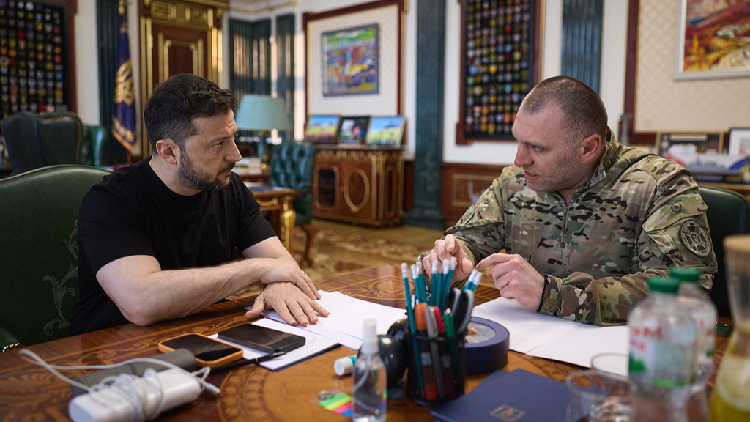Russia and Ukraine Prepare for Second Round of Peace Talks Amid Escalating Conflict
Ukraine claims a major strike on Russian strategic bombers as peace talks loom amid escalating tensions.

The second round of peace talks between Russia and Ukraine is set to begin at 1 p.m. Monday at the historic Ciragan Palace in Istanbul, as confirmed by the Turkish Ministry of Foreign Affairs. The announcement comes amid a dramatic escalation in military activity, heightening anticipation—and skepticism—about whether meaningful progress towards peace can be achieved.
Ukraine has entered these negotiations with a newly expanded delegation and a detailed proposal for a phased peace process. Kyiv’s plan calls first for a 30-day minimum ceasefire, to be followed by a sweeping prisoner exchange and the return of Ukrainian children taken to Russian-controlled territories. The ultimate ambition is a face-to-face meeting between Presidents Volodymyr Zelenskyy and Vladimir Putin, a move underscored by Ukrainian officials as crucial for resolving the most entrenched issues of the conflict. The delegation, now comprised of 14 representatives—including several newcomers from military, legal, and human rights backgrounds—will again be led by Defense Minister Rustem Umerov, reflecting Ukraine’s intent to address both military and humanitarian concerns at the negotiating table.
Russia’s team will remain unchanged, under the leadership of Presidential Aide Vladimir Medinsky, who arrived in Istanbul ahead of the talks. The Kremlin is bringing a new draft memorandum and additional proposals, with a stated focus on achieving a ceasefire. While the precise contents of the Russian memorandum have not been disclosed, navigation safety in the Black Sea is reportedly among the topics to be discussed.
Despite the preparations for peace negotiations, the situation on the ground has deteriorated sharply. In the days preceding the talks, a series of violent incidents rocked regions along the Russia-Ukraine border and beyond. A catastrophic bridge explosion in Russia’s Bryansk region killed at least seven and injured dozens more when it brought down a bridge over a crowded passenger train. Another bridge collapse in Kursk derailed a freight train, igniting a fire and injuring rail workers. Russian authorities launched terrorism investigations, while Ukrainian officials dismissed the incidents as possible "false flag" operations designed to sway international sentiment during the critical lead-up to negotiations.
The violence escalated with a daring Ukrainian strike on Russian strategic bombers deep inside Siberia. Ukraine’s Security Service announced late Sunday that it had orchestrated a large-scale drone attack targeting airbases hosting nuclear-capable bombers, claiming approximately 34 percent of Russia’s fleet was hit—an unprecedented attack so far from the front lines. Ukrainian officials detailed the operation’s scope, stating 117 drones were deployed and reporting that 41 warplanes had sustained damage. President Zelenskyy lauded the raid as an “absolutely brilliant outcome.” However, Russian sources disputed the scale of the damage, asserting that only a handful of aircraft were destroyed and suggesting all other damage was likely reparable.
Moscow countered with its own strikes, including a missile attack on a Ukrainian army training facility that left 12 soldiers dead and over 60 wounded. Meanwhile, Ukraine’s Defense Intelligence claimed responsibility for blowing up a Russian military supply train in southern Zaporizhzhia Oblast, continuing efforts to disrupt Russian logistics. The surge of cross-border attacks underscores the deep mistrust and entrenchment on both sides, complicating efforts to broker a truce or longer-term settlement.
As delegates arrive in Istanbul, the core issue remains a possible ceasefire agreement. Yet, fundamental differences cloud the prospects for progress. Russia insists that any truce must be linked to “broader demands”—including NATO’s non-expansion, Ukraine’s neutrality, and the rollback of Western sanctions. Ukraine, conversely, seeks an immediate ceasefire as the starting point for negotiations, prioritizing urgent battlefield relief and the return of its citizens. Observers caution that mistrust runs deep, and despite strong international expectations, the possibility of a breakthrough remains uncertain.
With the opening session just hours away, the world’s attention will focus squarely on how—or if—these high-stakes talks can navigate escalating violence, long-standing grievances, and mutual suspicion to deliver a path toward peace.




